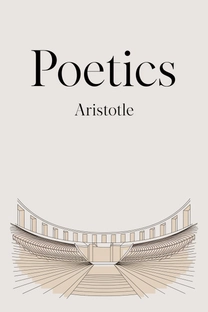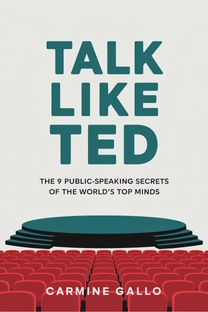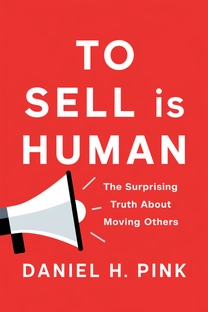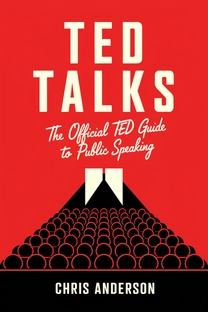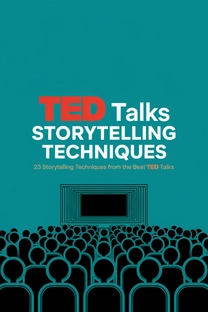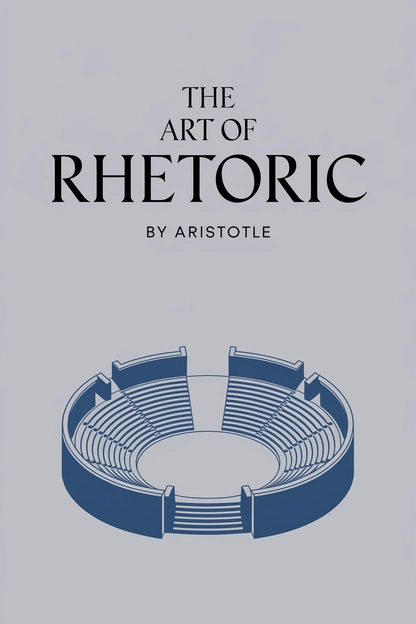
The Art of Rhetoric
Uncover Persuasion and the Principles Behind Oratorical Skill
by Aristotle
Brief overview
This book explores how speech can be crafted to persuade and move an audience, balancing logical argumentation with emotional appeal and a compelling presenter’s voice. By examining both the construction of effective arguments and the psychological factors influencing listeners, it shows how skillful rhetoric can guide people toward certain judgments or decisions.
Introduction
Rhetoric is about more than just speaking; it is fundamentally the art of persuasion. In times past, it helped public figures, politicians, and philosophers alike to shape opinions and encourage action. Today, its core principles remain just as relevant in debates, pitches, or any setting where influence is sought.
At its heart, rhetoric rests on understanding human nature: we respond not only to facts but also to character and emotion. Drawing on logic, ethics, and an understanding of the audience, it directs the course of discussion toward a desired verdict or conclusion.
This text provides a blueprint for mastering rhetoric: it shows the types of argument, the emotional triggers that can sway audiences, and the stylistic techniques that elevate speech beyond mere talking points. Through these pages, the craft of effective persuasion unfolds.
The following sections discuss central themes such as building arguments, driving emotional engagement, and reflecting a speaker’s trustworthiness—tools that are indispensable for anyone aiming to communicate convincingly. We begin with the nature of rhetoric and end with ways to refine and apply its lessons in practice.
The Nature of Rhetoric
Rhetoric can be seen as a science of spotting what is most likely to persuade in any given context. It does not cling to one specific subject, like mathematics or medicine, but rather scans the possibilities of persuasion wherever ideas need to be argued before an audience.
Two primary categories of proof exist. The first is non-technical, including documents, witness accounts, or contracts, which are often used in legal contexts. The second is technical, relying on the speaker’s own skills to construct logical arguments, reveal character, or evoke emotions in the audience.
At the core, rhetorical success involves manipulating probabilities rather than absolute certainties. Different people weigh arguments differently, so the rhetorician must grasp which angles best resonate. This adaptability and focus on plausibility, rather than mathematical precision, make rhetorical techniques both flexible and broadly applicable.
What is The Art of Rhetoric about?
"The Art of Rhetoric" by Aristotle offers a timeless exploration into the art of persuasion, unlocking key techniques for effective communication. This seminal work delves into the vital components of speaking persuasively, blending logical argumentation, emotional resonance, and speaker credibility to sway audiences. With its focus on ethos, pathos, and logos, the text provides foundational insights that transcend time, illustrating how influential discourse can be shaped by truth and virtue, rather than mere manipulation.
The book stands out for its enduring relevance in contemporary settings, where debates and negotiation skills remain crucial. Aristotle's emphasis on understanding human psychology enhances the practical application for readers seeking to excel in public speaking, debates, or any context where influential dialogue is paramount. The holistic approach in "The Art of Rhetoric" not only informs readers about the techniques of persuasion but also instills an appreciation for the ethical application of these skills.
Review of The Art of Rhetoric
In "The Art of Rhetoric," Aristotle presents a comprehensive toolkit for mastering the art of persuasive communication. One of its greatest strengths lies in the methodological approach that balances logic, character, and emotion, offering a nuanced guide for crafting impactful speeches. The book is structured around Aristotle's famous triad—logos, ethos, and pathos—ensuring that readers learn not just to convince, but to resonate deeply with audiences.
The practicality of Aristotle’s advice is evident in its ability to transform abstract rhetoric into actionable strategies. The writing is both accessible and profound, using vivid examples to elucidate complex ideas. This clarity makes the content widely applicable, whether for a CEO pitching a new initiative or a student preparing for a debate.
The conversational style allows Aristotle's eons-old wisdom to remain relevant, making it easy for modern readers to connect with and apply the concepts. It’s ideal for professionals looking to refine their public speaking or anyone interested in the psychological underpinnings of persuasion. Ultimately, "The Art of Rhetoric" isn’t just a guide—it’s a testament to the power of ethical communication, earning a strong recommendation for those ready to enhance their rhetorical mastery.
Who should read The Art of Rhetoric?
- Public speakers looking to enhance their persuasive skills and refine their approach to delivering impactful speeches.
- Debaters who wish to deepen their understanding of logical argument construction and audience engagement techniques.
- Business leaders or entrepreneurs seeking to influence stakeholders and pitch ideas with compelling authority.
- Educators interested in applying rhetorical principles to nurture critical thinking and articulate expression in students.
- Law professionals aiming to bolster their courtroom presence with well-rounded argumentation and emotional intelligence.
About the author
Book summaries like The Art of Rhetoric
Why readers love Mindleap
10-Minute Book Insights
Get the core ideas from the world's best books in just 10 minutes of reading or listening.
Curated For You
Discover your next favorite book with personalized recommendations based on your interests.
AI Book ExpertNew
Chat with our AI to help find the best book for you and your goals.
Reviews of MindLeap
Love how I can get the key ideas from books in just 15 minutes! Perfect for my busy schedule and helps me decide which books to read in full.
Alex R.
The summaries are incredibly well-written and the audio feature is perfect for my commute. Such a time-saver!
Jessica M.
Great app for personal growth. The insights are clear and actionable, and I love how they capture the essence of each book.
Chris P.
The app is beautifully designed and the summaries are top-notch. Definitely worth every penny!
Sarah K.


